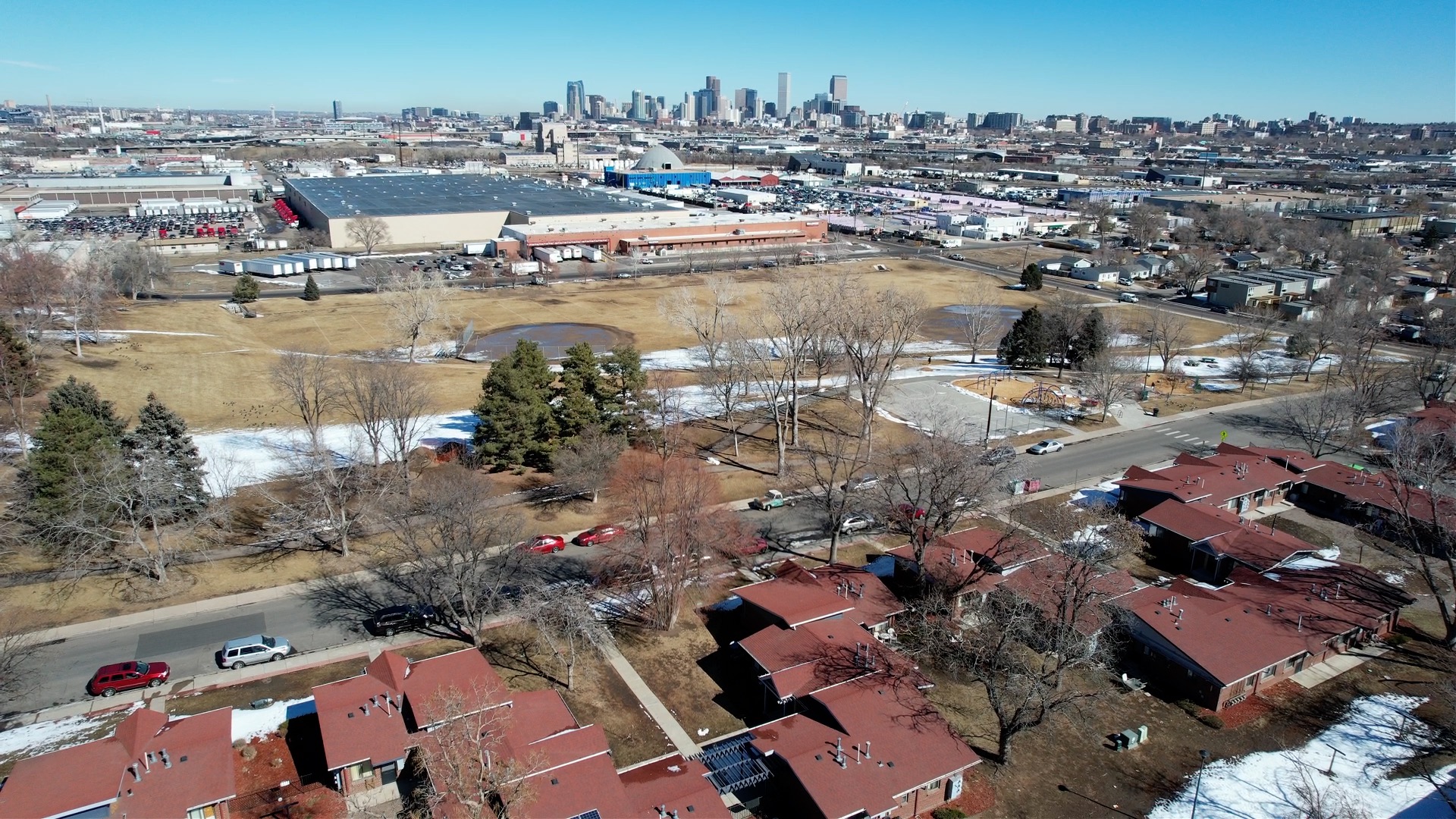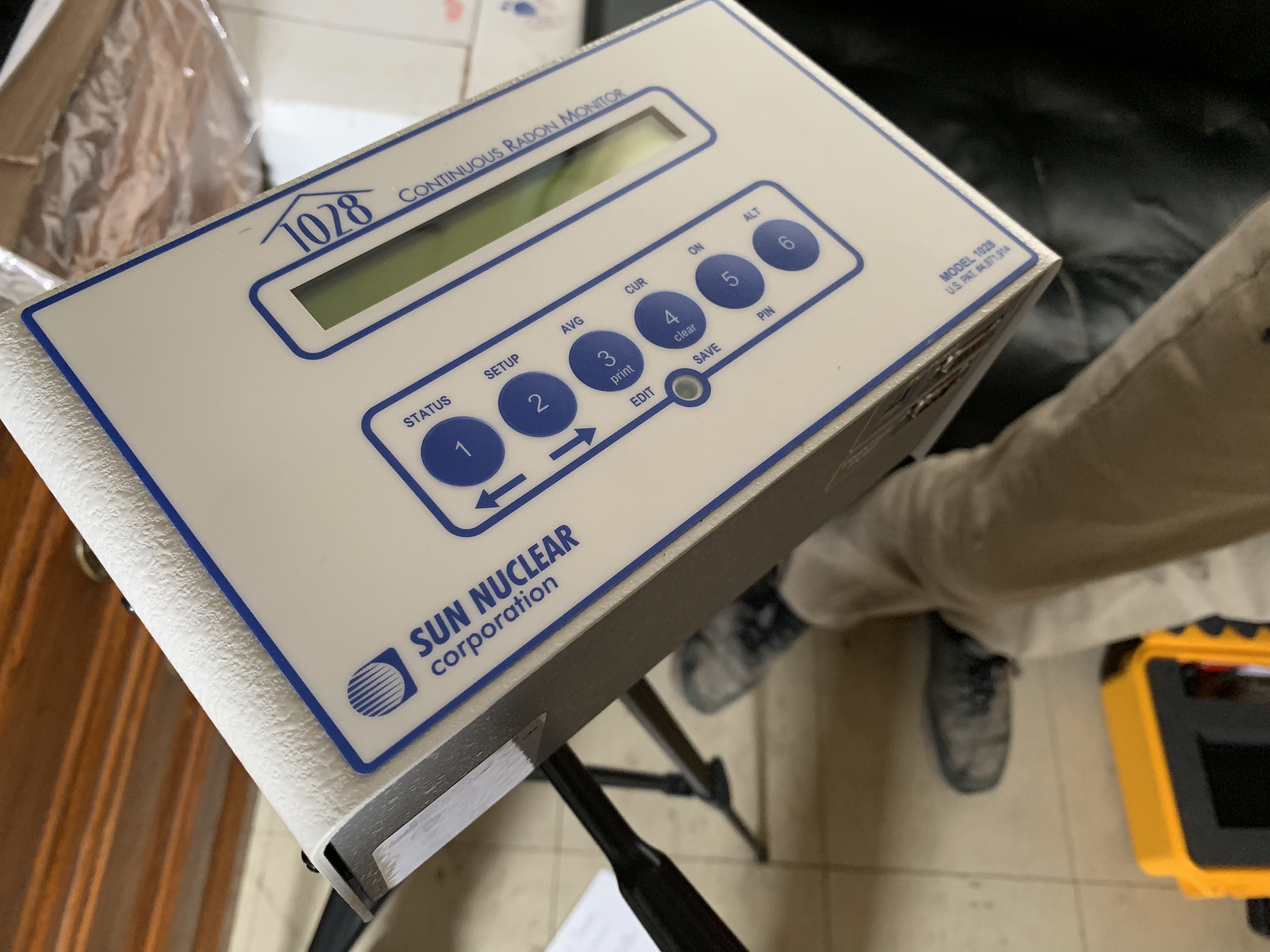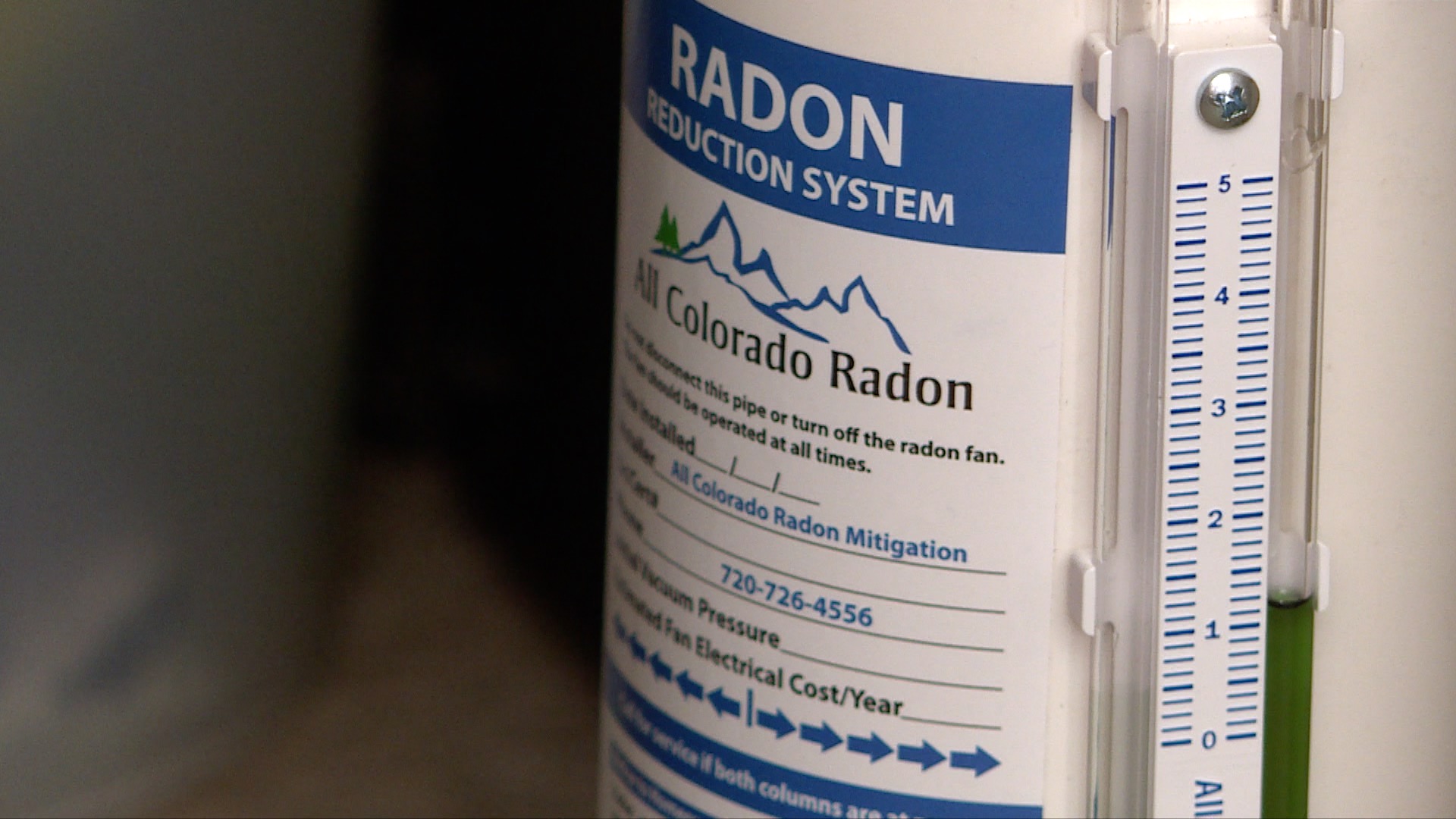Following CBS4 investigation, Denver Housing Authority begins installing radon mitigation in public housing units – CBS Denver
DENVER (CBS4) – After CBS4 surveys found high levels of radon in some Denver public housing units, the Denver Housing Authority is installing radon mitigation systems at the Columbine Homes public housing complex to protect residents. The DHA plans to test, and mitigate if necessary, every unit in its public housing inventory over the next two years.
Maria Chacón, a retired waitress, is one of the first residents to receive an abatement scheme at her unit at Columbine Homes in Denver’s Valverde neighborhood on Alameda Avenue, just west of Interstate 25. It was installed in February.
“This will be a benefit for the entire community,” Chacón said in an interview with CBS4 Investigates translated from Spanish.

An aerial view of Columbine Homes and the Denver skyline. (Image credit: Rob McClure, CBS4)
What is radon?
Radon is a radioactive gas that naturally rises from the ground, but if trapped in your home it can be inhaled in high concentrations and cause lung cancer.
The EPA says radon exposure is the leading cause of lung cancer among non-smokers in the US, killing about 21,000 people annually. However, CBS4 research has found that there is no law requiring public housing to undergo radon testing or mitigation.
CBS4 examines 2020 radon test results generating action
In January 2020, CBS4 Investigates hired a state-certified radon testing company – Area 5280 Home Inspections – to place sensors in five units of two different public housing units: Columbine Homes and Westridge Homes. The test was conducted in February 2020.
Both results at the Columbine Homes complex were twice the EPA’s safe indoor radon limit, which is 4 picocuries per liter. The two results were 8.4 pCi/L and 7.8 pCi/L.
At the Westridge Homes complex, a result of 3.2 pCi/L was just below the EPA limit. Two other results were well below the limit at 1.0 pCi/L and 0.7 pCi/L.

A radon test sensor is located in a Westridge Homes unit just before testing begins in February 2020. (Image credit: Kati Weis, CBS4)
Now, two years later, DHA says it has completed its own testing of all 200 units in Columbine homes and is working to install a radon abatement system in each unit by June.
“When reports came out of some of the preliminary testing from Columbine Homes, we felt it was important to continue with those tests and then put together a plan for operational procedures and the installation of radon equipment,” DHA executive director David Nisivoccia told CBS4’s Kati Weis in one interview on Monday. “Anytime someone brings attention to an issue or detail that the agency has been working on and trying to reconcile, that gives us the impetus to make sure we see it through. I appreciate very much.”
Nisivoccia says while not every unit was tested above the EPA’s safety limit, it was important for DHA to go ahead and install mitigation systems in all of them.
“In the units tested below I think we should still take the step of keeping people safe and healthy in general and you know the dynamics are changing when it comes to earthwork contact and how the earth is changing over the Time develops.” explained Nisivoccia. “So it’s better to be prudent and proactive and use those testing units and those mitigation devices even if someone in their unit hasn’t tested higher levels because that could change.”
CBS4 Investigates specifically asked DHA how many units were tested above the EPA limit of 4 pCi/L and how many were tested below, in addition to the highest result found and the lowest result found in the complex, but DHA has not yet provided any details on these Pay.

The radon abatement device is in operation at Maria Chacón’s Columbine Homes unit. (Credit: Kati Weis, CBS4)
While the pandemic has slowed action efforts, Nisivoccia said DHA has also been testing and clearing common spaces.
Once all of the mitigation systems are installed in each unit of the Columbine Homes complex, Nisivoccia says DHA will begin testing another complex and install mitigation systems if the results are high enough. He says federal grant money will pay for these testing and mitigation efforts.
“This is a historic time for people in our industry,” said Nisivoccia. “I have never seen organizations like us in my 61 years on this planet providing resources that are being provided to us now.”
According to Nisivoccia, DHA is still working to determine which trait to target next.
“We’re going through this process of identifying priority properties…our plan is for everything to be completed, hopefully within 18 months to two years because that’s how important we feel this is an issue,” Nisivoccia said.
He says that after all mitigation devices are installed, follow-up tests are conducted to ensure the systems are functioning properly.
Nisivoccia also says community meetings will be held at each property to update residents on the testing and mitigation efforts. He says briefing papers will also be given to residents when tests are conducted in their units.
“Not only will we give them the information about the device and why, but we will also provide this in multiple languages, as we understand that we have quite a heterogeneous population base,” Nisivoccia said. “So we’re going to make sure we’re providing the information in the language they understand and then we’re going to deal with any questions they have because we don’t want them to be uncomfortable or unclear as to why we’re going down this way when it comes to the safety of the residents.”
Chacón remains skeptical, saying she hasn’t received much information about the radon testing or mitigation installation that was conducted at her unit.
“They sent a message from the shelter that they were going to bring a small package for the radon and they didn’t give me too much explanation and then after three days they picked it up,” she recalled.
Regardless, she hopes these damage control measures will make a difference for her and her neighbors.
“Most of the people who live here are sick with something… we are people with problems, we have low-paying jobs, we are people with few resources,” Chacón said. “This problem is like a ticking bomb, it’s a slow death but it kills… (but this research) makes me more optimistic about everyone’s health.”
https://denver.cbslocal.com/2022/03/02/cbs4-investigation-denver-housing-authority-radon-mitigation-installation-public-housing/ Following CBS4 investigation, Denver Housing Authority begins installing radon mitigation in public housing units – CBS Denver